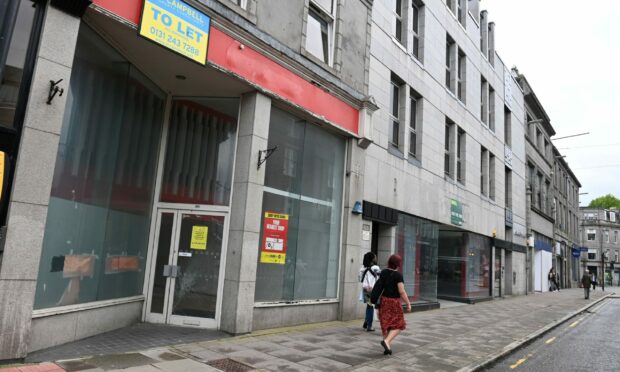Almost 650,000 jobs have been lost in the UK’s retail sector over the past five years, according to new figures.
The Centre for Retail Research said that 645,204 retail jobs have been lost and 72,580 stores closed across the whole of the UK during the five years since 2017.
This included 105,727 jobs lost last year as the continuation of the furlough scheme kept losses below previous years.
The stark figures come as high street firms face a significant increase in business rates after benefiting from tax breaks during the pandemic.
Business rates liabilities, the tax on commercial properties, are worked out based on a property’s “rateable value”.
Finance Secretary Kate Forbes recently hinted that business rates might have to rise in her recent spending review which aims to head off a projected £3.5 billion shortfall by 2027.
She said that for the next rates revaluation to be revenue-neutral in 2023-24 “based on current expectations about the tax base, an increase in the poundage would be required”.
The Scottish Retail Consortium has estimated retailers account for close to a quarter of all business rates in Scotland.
Recent figures revealed retailers are struggling to recover from Covid, with shopper footfall growth the worst in the UK.
The next non-domestic rates revaluation in Scotland will take effect next year and will be based on rental values pertaining as at 1 April 2022, and not 1 April 2020.
Econony facing recession – CBI
Meanwhile, a leading business group has downgraded its outlook for economic growth amid calls for Government action to avoid a recession.
The CBI said that with less than 40 days until Parliament goes into its summer recess, the countdown was on for the Prime Minister and Chancellor to take the “vital actions” needed to avoid a recession.
The group warned there was a risk that the economy would be a “distant second” to politics in the coming months because of the cost-of-living crisis, airports struggling to cope, planned national rail strikes and “Groundhog Day” battles with the EU over the Northern Ireland Protocol.
The CBI downgraded its growth outlook to 3.7% for this year, from 5.1% previously, and just 1% in 2023, from 3%.
The CBI said it believes inflation is expected to remain high into the Autumn, rising to 8.7% in October, leading to a “historic squeeze” in household incomes, which will hit consumer spending.
Tony Danker, CBI director general, said: “Let me be clear – we’re expecting the economy to be pretty much stagnant. It won’t take much to tip us into a recession, and even if we don’t, it will feel like one for too many people.
“Times are tough for businesses dealing with rising costs, and for people on lower incomes concerned about paying bills and putting food on the table.
“It’s as clear as day that business investment is one of the few bright spots left in our economy.
“We’ve had weeks of politicking with the country standing on the brink of a summer of gridlock.
“There is only a small window until recess. Inaction this summer would set in stone a stagnant economy in 2023, with recession a very live concern.
“We need to act now to install confidence.”
The CBI called for measures including steps to alleviate labour and skills shortages.
Rain Newton-Smith, CBI chief economist, added: “This is a tough set of statistics to stomach. War in Ukraine, a global pandemic, continued strains on supply chains – all preceded by Brexit – has proven to be a toxic recipe for UK growth.
“The bottom line is that the outlook for UK exports remains far worse than our worldwide competitors. This has got to change for the better.”


